Inspired by the widespread ‘Arab Spring’ movements in countries across the Middle East, Bahraini anti-regime protesters on 14 February 2011 took to the streets in the small Persian Gulf monarchy in a series of protests against the ruling Al-Khalifa family. The mass protests were violently broken up by government security forces, with dozens of protesters killed and hundreds jailed. In the five years since the uprising, Bahraini activist Said Yousif Al-Muhafdah told Mehr News Agency that the pro-democracy movement, although quieter now, is still ongoing while the widespread crackdown against peaceful activists continues.
Said Yousif Al-Muhafdah who serves as the Vice President of the Bahrain Center for Human Rights, a non-profit organization based in Bahrain and Denmark, has himself been a target of arbitrary arrests and torture for his human rights work in Bahrain and exiled to Germany as a result.
“People are fighting for their basic human rights, justice, democracy and freedom,” Mr. Al-Muhafdah says of the background for the political and civil rights movement in Bahrain. “There are groups which want the monarchy to remain and other groups which are pushing with their demands that the ruling family leave the power, but we as human rights activists do not care which government background is ruling as long as they respect human rights and implement justice.”
What in fact sets the 2011 Bahrain Uprising apart from the rest of the Arab world is the fact that Bahrain's uprising didn't get quite as much attention as some of the other uprisings happening at the same time, and also the peaceful nature of the protests which were then faced with brutal government repression. Al-Muhafdah elaborates on these two distinctive aspects, “well, we are in Bahrain victims of having been born in an oil-rich country and region, and as a result, governments do not want to upset the Saudi regime and many media are owned by the Persian Gulf governments, especially the Arab media and other Western media with economic relations to them, but even with all this complication, we succeeded in telling the world what is going on in Bahrain.”

“Of course, when we talk about my people’s struggle for democracy, we have to remember that we are not only fighting Bahraini government but all the other Persian Gulf countries except Oman,” said Al-Muhafdah on the reasons Bahrain became the one Arab country whose uprising was suppressed. “When we went out in the street in 2011 and I was one of them, we called for democracy; one month later Saudi and UAE troops came to my country and attacked the protesters and their message was that democracy is not allowed in our region.”
According to Amnesty International, after five years since the uprising, “hopes for progress on human rights and accountability for past and present abuses have faded.” Al-Muhafdah describes the conditions of the political prisoners currently held in Bahraini jails as “lack of treatment, solitary confinement, torture, violation against basic right, and collective punishment.”
“The demands of the Shia majority during the Bahrain Uprising were mostly political as they were calling for an elected government, freedom, basic human rights, the release of political detainees, and an end to discrimination,” said Al-Muhafdah of the current condition of the Shia population in Bahrain and the government’s discrimination against them; “since the king of Bahrain assumed power, the discrimination against the Shia became worse than ever; they are not allowed to work in army or in the police department. They are not allowed to work in the Ministry of Intelligence, Foreign Affairs and many other sensitive government ministries. The Al-Khalifa kingdom has also demolished 37 Shia mosques which is a kind of blatant discrimination against them.”
But is revolution still ongoing in Bahrain? Al-Muhafdah says yes, although the pro-democracy movement is facing many challenges; “in our case in Bahrain, we have had a strong civil society since 1960 but as I said, we are facing the Persian Gulf countries which are against democracy in Bahrain, as well as the US and UK which have military interest in Bahrain are also against an elected, democratic government in the island nation."
“These Western countries call for democracy in Syria and other countries but not in Bahrain and other oil-rich countries that are buying their weapons. This is what I call blatant hypocrisy,” he said of the greatest threat to Arab democracy.
Said Yousif AlMuhafdah is the Vice President of the Bahrain Centre for Human Rights, a non-profit organization based in Bahrain and Denmark. Having worked as the Head of Documentation in Bahrain from 2007 to 2013, he has been arrested on many occasions and spent several months in prison on political charges. In the spring of 2014, Sayed Yousif went into exile in Germany, following continuous judicial harassment and threats to his life. Currently living in Berlin with his family, he continues to work as a human rights defender, promoting awareness throughout Europe about issues in Bahrain.
Interview by: Marjohn Sheikhi


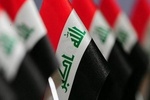
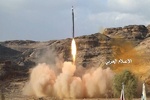
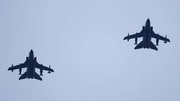

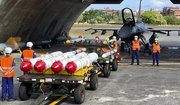
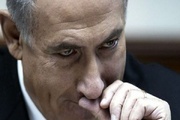
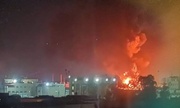
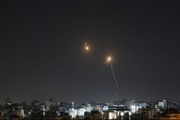
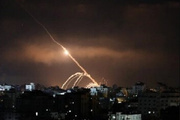
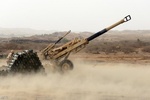
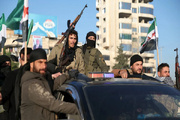



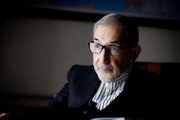
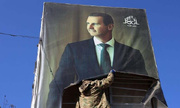


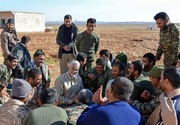
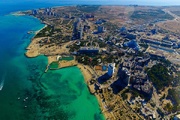
Your Comment